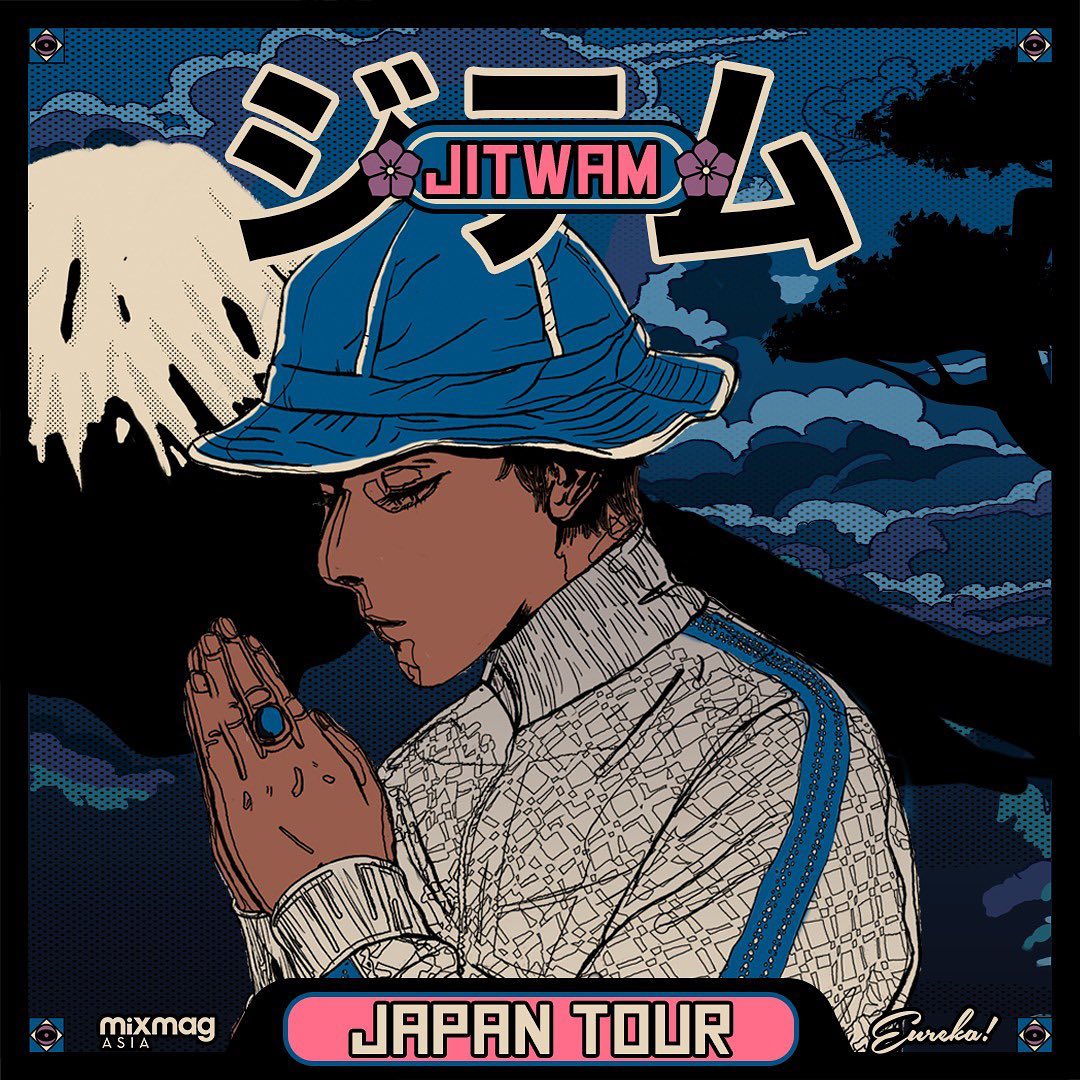サイケロック×ヒップホップ×ハウス×ソウル……カテゴライズ不能のグルーヴィな楽曲の数々
Moodymannも認めた唯一無二の音世界を生み出す奇才”jitwam”

- このイベントは終了しました。
Jitwam
2023/03/18
イベント ナビゲーション


LINE UP :
Jitwam
mocca*
HIRONAIA
Thale (SPRING)
OPEN 23:00
ADV : 2,000yen
Zaiko Ticket : https://circus.zaiko.io/e/jitwamosaka
DOOR: 2,500yen
TICKET
Jitwam
For Jitwam, his career in music has always felt predestined. The first record he bought – a $2 blank white-label vinyl – turned out to be a Moodymann track, a discovery he made around the same time he found out his music would be featured on Moodymann’s DJ Kicks compilation. That, like countless other examples, reinforces a narrative Jitwam has been trying to espouse in his music: one of universality, of one consciousness to understand we’re one human race. “In music, there have always been blessings along the way,” the Sydney-based artist says. “I’ve always had a spirit that wants to give. Instinctually, it feels natural to me. The experiences I’ve had have shaped my concepts of unity indirectly. Taking those experiences into your unique worldview dictates how you feel about certain issues.”
This ethos rings true in his work where he prioritises purpose over spectacle. After finding success through a handful of tracks as well two LPs, ‘िज़तम सहँ’ and ‘Honeycomb’, Jitwam has become a mainstay of the underground. Incorporating sounds from across the world, he marries incisive political commentary with deep introspection creating work that is, at once, wrenchingly intimate and sweetly playful. It’s on his latest record, ‘Third’, though, where his ideas are fully-formed, ready to take flight. “I’m more inclined to release music that means something to me as opposed to ‘I got a hit record’,” he says.
On ‘Third’, he expands upon his beat-making abilities and production, fusing live music with samples and edits while elevating his craft to new heights. He evokes memories of finding peace within the chaos of daily life. As it takes Jitwam “time to sit and reflect”, the album was years in the making partly inspired by his time in London, but more so by his adventures in New York City. “I’ve been to many places in the world, but New York is so diverse, it’s so multicultural,” he says. “Seeing how cultures can be different but similar at the same time had a profound impact on me.”
Born in Guwahati, Assam in India, Jitwam is an only child who migrated with his parents to Sydney, Australia. Growing up in the suburbs, he was influenced by bands like The Avalanches, Gerling, and Sleepy Jackson. He played the guitar, took keyboard lessons and started writing songs as early as 14, but it wasn’t his 20s, after travelling around the world, that he started taking music seriously.
“I stayed in an orphanage in South Africa, I was at a monastery in Thailand for three months,” he explains. “I went travelling through India, staying with people that reclaim forest areas, learning how to live on the land, so you’d create your toilet irrigation systems, cooking stuff literally in the middle of the forest… Then, I moved to London.”
Introduced to electronic music whilst living in London, Jitwam’s songwriting turned, allowing him to use the rock influences he grew up with and melding them into tightly melodic, luxuriously layered production. His time in New York City allowed him to experiment and understand that he could make a career out of the melodies crafted in his head.
Jitwam is also the co-founder of seminal label The Jazz Diaries, a venture he started to shine a light on artists blurring the lines between electronics and live instrumentation. Over the past two years, Jitwam has also been at the forefront of the current South Asian wave taking over the music industry, including helping establish London-based arts collective and label Chalo. “Growing up in Australia, not that I didn’t feel accepted or anything, but I had to push all the Indian-ness in me down as much as I could to fit in.,” he says. “It was revelatory living in London and New York. They make you realise how blessed you
are to come where you come from because there’s so many cultures in those cities and be proud of the things that make you you, because we’re all trapped in the same boat.”




